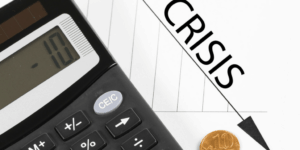Bankruptcy 101: What to Know Before Considering Filing
THIS POST MAY CONTAIN AFFILIATE LINKS. MEANING I RECEIVE COMMISSIONS FOR PURCHASES MADE THROUGH THOSE LINKS, AT NO COST TO YOU. PLEASE READ MY DISCLOSURE FOR MORE INFO.
In this guide we’ll help you understand the bankruptcy process from start to finish. We’ll dive into definitions and the differences between filing Chapter 7, 11 or 13 bankruptcy, as well as answer your questions about how much it costs, and why you shouldn’t be ashamed.
What is bankruptcy?
Bankruptcy is a legal proceeding involving a person or business that is unable to repay their outstanding debts. (investopedia.com)
Most times the bankruptcy process begins when the debtor files a petition. Though uncommon, it is possible for the creditor to file a petition for bankruptcy.
The assets of the debtor are evaluated and the court determines what may be used to repay debt.
The Difference Between Chapter 7, 11, and 13 Bankruptcy
There are several different types of Bankruptcy and figuring out which might be best, first requires you to understand the difference between them.
Chapter 7 Bankruptcy
Chapter 7 bankruptcy is a way to deal with overwhelming debt. It involves selling the debtor’s assets, potentially including property and vehicles in order to pay the creditors back. Though there are exemptions.
For example, the home you live in (not vacation homes), depending on how much equity you have make be exempt from your Chapter 7 filing.
Chapter 11 Bankruptcy
Chapter 11 bankruptcy is the most complex and expensive of the three types of bankruptcy. It involves reorganizing the debtors assets and debts.
But it requires giving up many decisions relating to sale of assets, and entering new contracts to the courts.
Large businesses will often file under Chapter 11 because it not only allows the business to survive, but it also allows many employees to keep their jobs and for others to get hired.
Chapter 13 Bankruptcy
Chapter 13 bankruptcy is a type of personal bankruptcy that allows individuals to repay some or all debts over three to five years. Though you must show that you have regular income as well as a few other requirements to qualify.
When should you consider filing for bankruptcy?
There are a number of reasons when you might consider filing for bankruptcy. If you declare bankruptcy before your debts have been repaid, your creditors will stop trying to collect the debt. So, if you are in a difficult financial situation and you think that declaring bankruptcy might help, then it is definitely worth considering.
How to file for bankruptcy
The process of filing for bankruptcy is actually very simple. The person must submit filing documents to the court, including their personal information, and their list of creditors. Next, they must provide proof that they are qualified to file for bankruptcy according to the type of bankruptcy they are filing.
Even with the filing requirements being so simple, many individuals find it hard to do this on their own and instead use an attorney or other professional services provider.
Additionally there are fees associated with filing for bankruptcy, depending on what chapter you’re filing under these could be anywhere from a few hundred dollars to a couple thousand.
What are the benefits of filing for bankruptcy, and what are the drawbacks?
Bankruptcy is a difficult decision that will have long-term effects on your credit and finances. This is why it’s important to weigh the pros and cons of filing for bankruptcy before you make your final decision.
Pros:
1) You’ll have a clean slate in regards to your financial obligations.
2) You may be able to keep some of your items or assets that are not protected by law (under certain circumstances).
3) Your financial obligations will end when you file for bankruptcy, such as credit card debt, medical bills, mortgages, student loans, etc.
Drawbacks
The bankruptcy filing process is not for the faint-hearted. It causes a lot of stress and anxiety because it leaves you with no credit score and makes it difficult to get a credit card or loan. However, if your debt is overwhelming and you don’t see any other way out, then bankruptcy may be your best option.
Bankruptcy can be a life-saving solution for some people. You should only file for bankruptcy if you are sure that this is the best solution for your problems, or if you are really desperate. You should talk to a lawyer before filing in order to find out what kind of impact this will have on your life after the process is over.
Why you should not be ashamed of filing for bankruptcy
Filing for bankruptcy is not a shameful event. If you need to file it, it’s best for you and your family. Bankruptcy protects you from harassment from creditors, especially if they are harassing you over debt that is discharged in the bankruptcy case.
The stigma of filing for bankruptcy is something that needs to be eliminated. Filing for bankruptcy should not be seen as a shameful thing but as a necessary way to get out of debt and have a fresh start.
It doesn’t mean that your financial future is ruined or that anything bad happened to you; it just means you were smart enough to know when enough was enough and decided to take steps towards betterment of yourself and those around you.
FAQs
It’s important to know the basics before you decide on filing for bankruptcy.
The process of filing for bankruptcy is a complicated one. It is also expensive, time-consuming, and can be emotionally taxing.
There are some basic things that you should know before filing for bankruptcy. First, it’s important to understand what type of bankruptcy you can file for. Second, it’s vital that you understand the repercussions of such a decision and have an understanding as to how your finances will be affected over the course of your lifetime. Third, it’s important that you are aware of whether or not your debts involve student loans or child support payments as these will need special consideration before being discharged in Chapter 7 or Chapter 13 bankruptcies respectively.
Here are some questions (and answers) often asked relating to filing for bankruptcy:
Do I need a lawyer to file for bankruptcy?
The answer to this question really depends on the individual and their financial situation.
If a person is not bankrupt, but living paycheck to paycheck, a bankruptcy lawyer can help them get out of debt.
But if a person is already bankrupt or has little to no assets, then they may not require legal counsel.
How much does it cost to file for bankruptcy?
It depends on the type of bankruptcy, here are the fees required for the 3 most common:
Chapter 7: The courts must charge a $245 case filing fee, a $75 miscellaneous administrative fee, and a $15 trustee surcharge. Normally, the fees must be paid to the clerk of the court upon filing. (uscourts.gov)
Chapter 11: The courts are required to charge a $1,167 case filing fee and a $571 miscellaneous administrative fee. The fees must be paid to the clerk of the court upon filing. (uscourts.gov)
Chapter 13: The courts must charge a $235 case filing fee and a $75 miscellaneous administrative fee. Normally the fees must be paid to the clerk of the court upon filing. (uscourts.gov)
How often can you file for bankruptcy?
The law varies from state to state in the U.S.
In most states it is possible to file for bankruptcy only once every 8 years. There are some exceptions, such as when a person has a very high debt load and can’t repay their loans.
If you are considering filing for bankruptcy, contact your local legal expert.
Can you rent an apartment after bankruptcy?
It’s possible to rent an apartment after bankruptcy, but you will need to be creative with the way you go about it. You will have to find a landlord who is willing to work with your financing situation and your credit history. If you have a stable job and a good credit score, then it will be much easier to find a place to rent that suits your needs.




